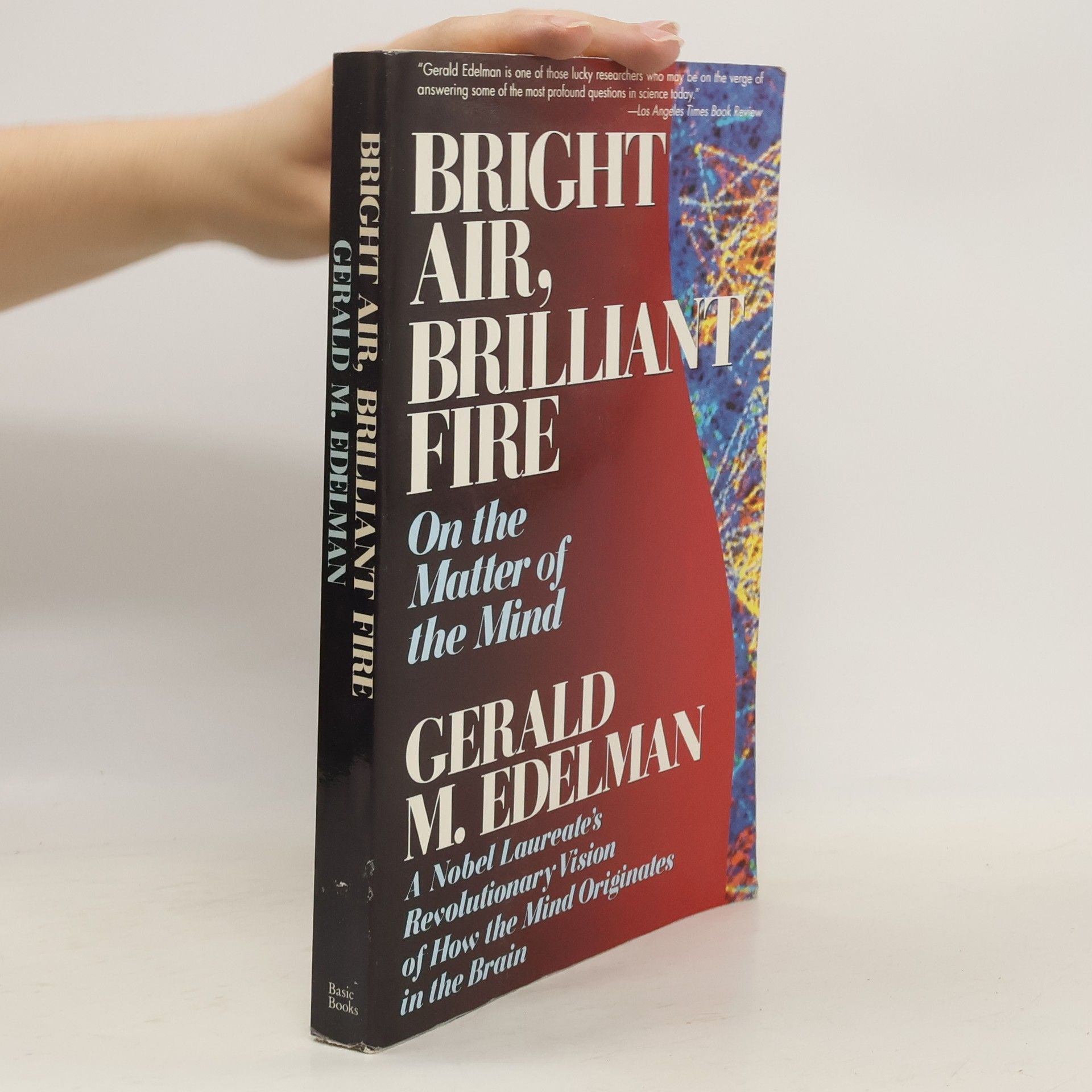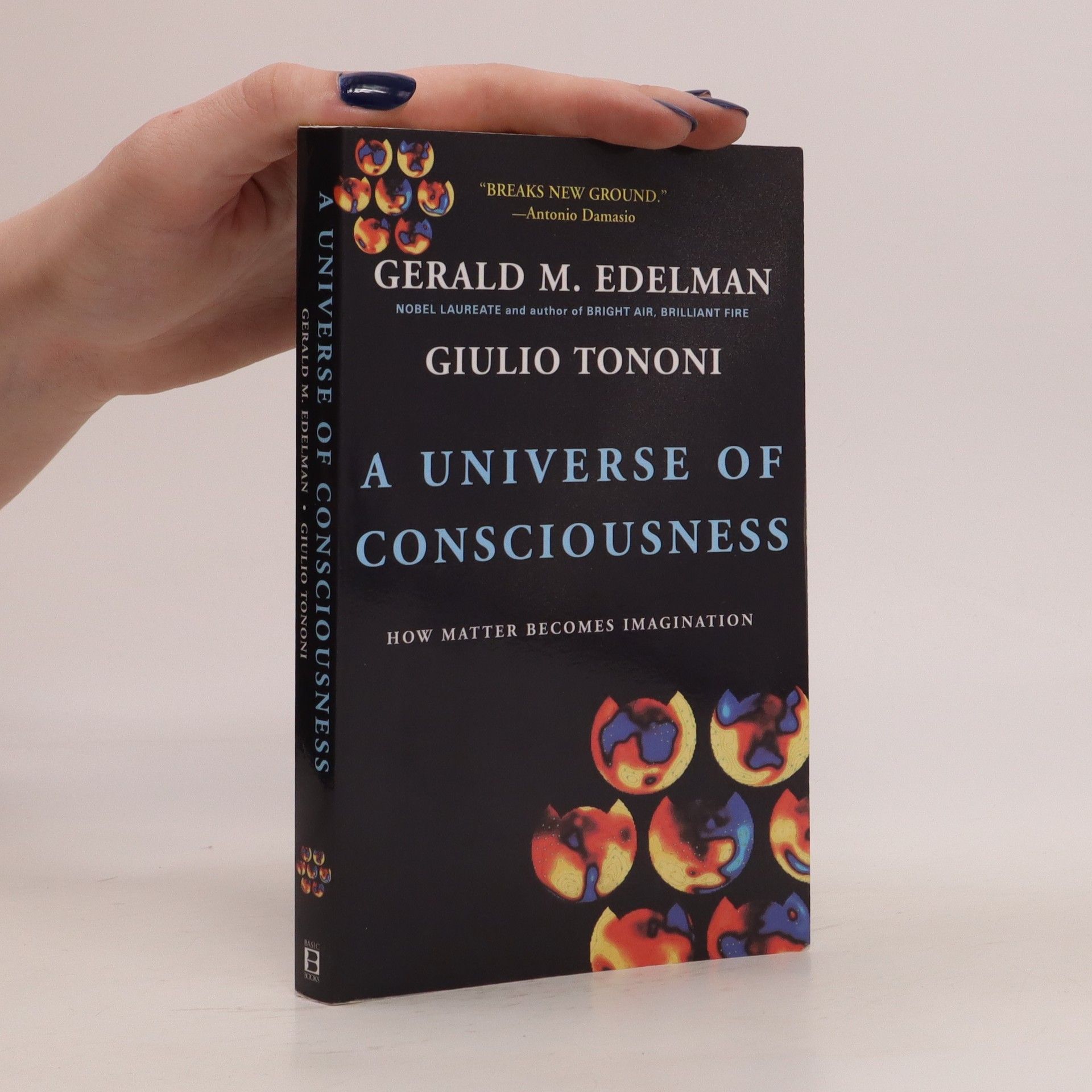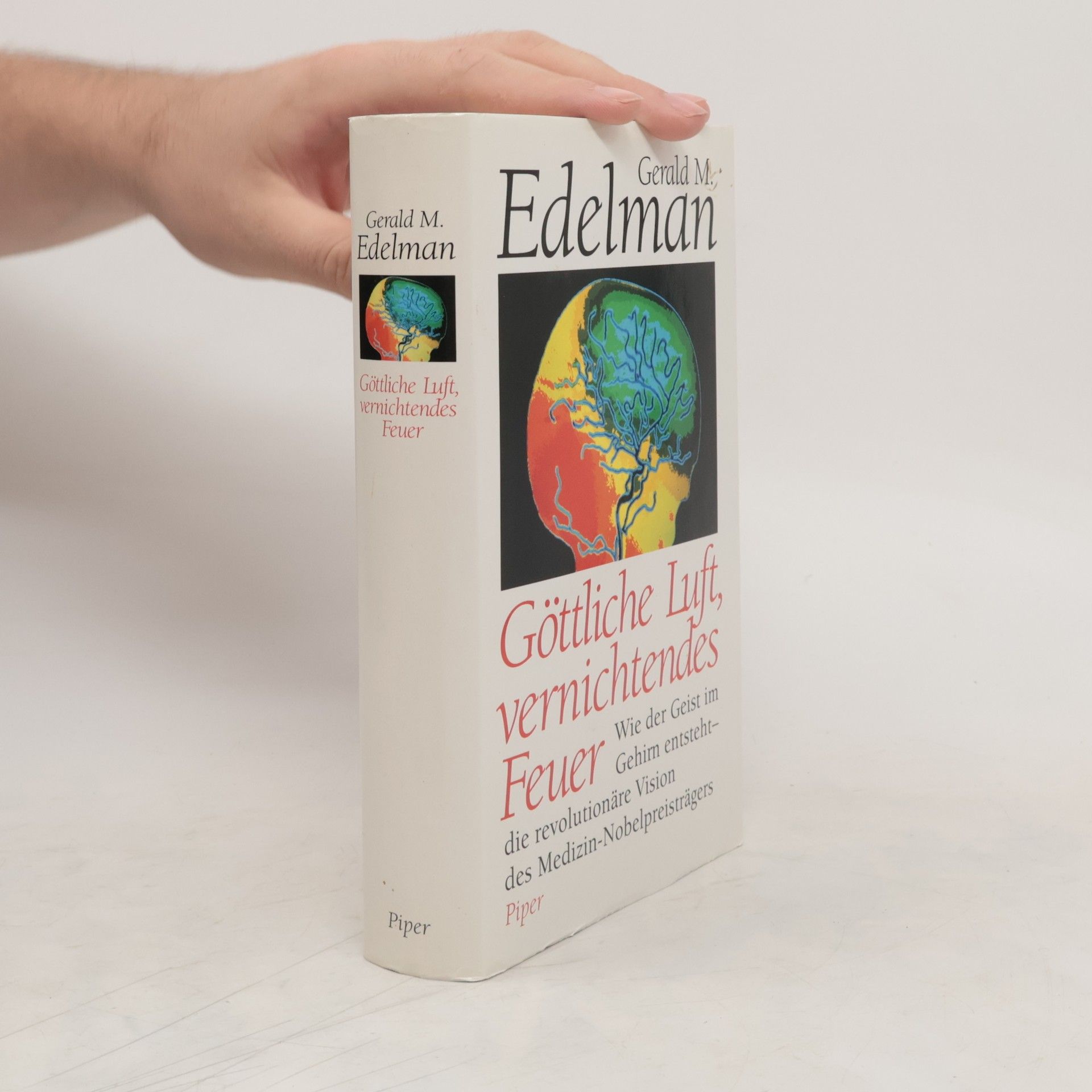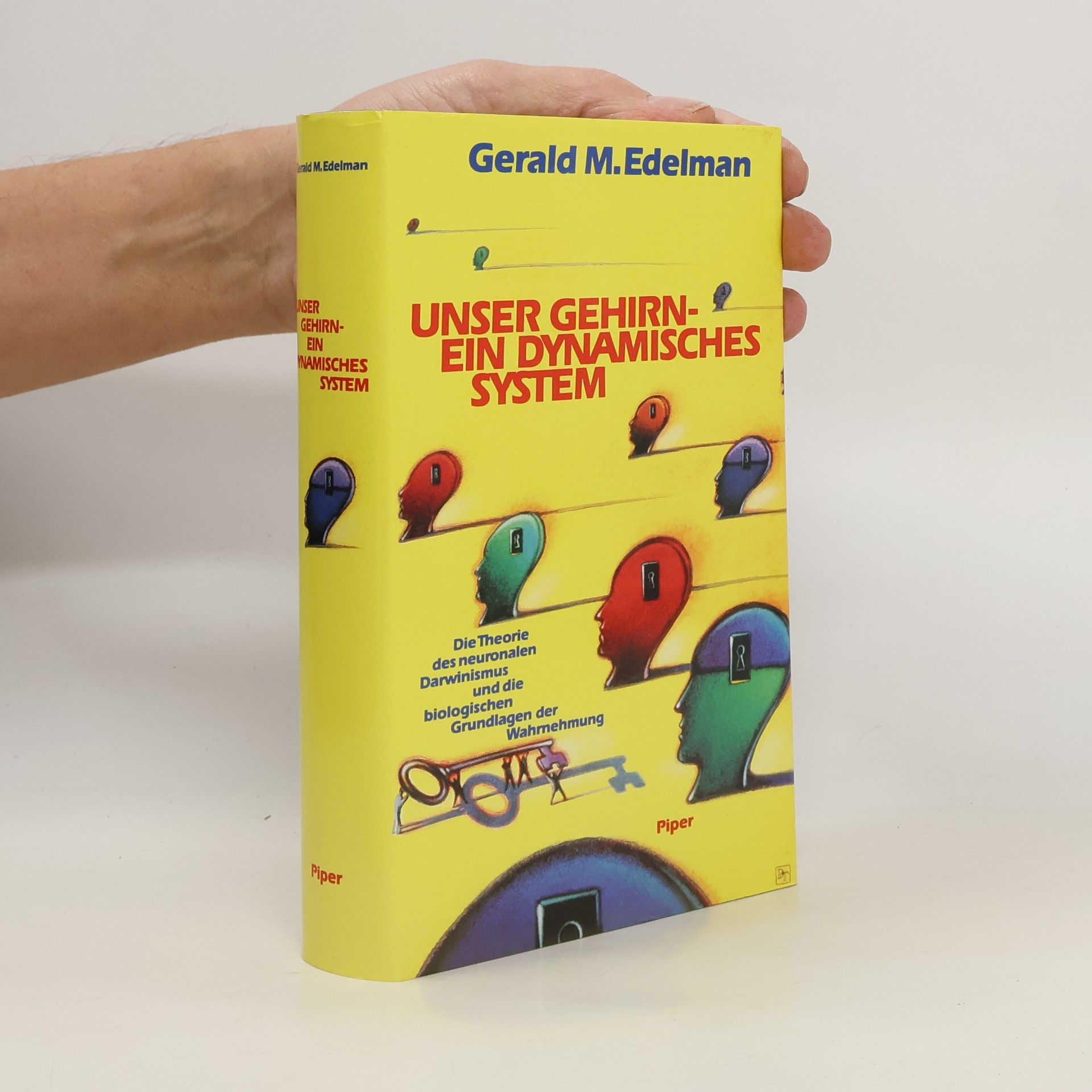How does the firing of neurons give rise to subjective sensations, thoughts, and emotions? How can the disparate domains of mind and body be reconciled? The quest for a scientifically based understanding of consciousness has attracted study and speculation across the ages. In this direct and non-technical discussion of consciousness, Dr. Gerald M. Edelman draws on a lifetime of scientific inquiry into the workings of the brain to formulate answers to the mind-body questions that intrigue every thinking person.Concise and understandable, the book explains pertinent findings of modern neuroscience and describes how consciousness arises in complex brains. Edelman explores the relation of consciousness to causation, to evolution, to the development of the self, and to the origins of feelings, learning, and memory. His analysis of the brain activities underlying consciousness is based on recent remarkable advances in biochemistry, immunology, medical imaging, neuroscience, and evolutionary biology, yet the implications of his book extend farther—beyond the worlds of science and medicine into virtually every area of human inquiry.
Gerald M. Edelman Book order (chronological)
Gerald Edelman was an American biologist whose work spanned the immune system, neuroscience, and philosophy of mind. His Nobel Prize-winning research revealed the structure of antibody molecules. Edelman drew an analogy between the evolutionary development of immune system components throughout an individual's life and the developmental evolution of brain components. This perspective created a continuity between his biological and neurological studies, influencing his later work in neuroscience and the philosophy of mind.







Warum weiß ich, wenn ich morgens aufwache, wer ich bin? Wie entsteht Bewusstsein? Wo ist es lokalisiert? In kompakter Form präsentiert der hoch angesehene Neurowissenschaftler und Nobelpreisträger Gerald Edelman seine bahnbrechenden Erkenntnisse, wie Myriaden von feuernden Nervenzellen Gedanken, Gefühle und Empfindungen erzeugen können Das Fazit eines der renommiertesten Neurobiologen über seine langjährige Forschung zur Entstehung des Bewusstseins.
Gehirn und Geist
- 380 pages
- 14 hours of reading
„Für alle, die sich für die Grundlagen des Bewußtseins interessieren, ist Gehirn und Geist Pflicht.“ Antonio Damasio, Autor von „Descartes’ Irrtum“. Vier Fragestellungen sind in diesem Buch von zentraler Bedeutung: Wie entsteht Bewußtsein überhaupt? Welche Vorgänge des Gehirns sind für die bewußte Erfahrung verantwortlich? Wie schlagen sich die subjektiv unterschiedlichen Erfahrungen in den Gehirnprozessen nieder? Wie läßt sich das wissenschaftliche Verständnis von Bewußtsein mit der ungeheueren Vielfalt menschlicher Wissens- und Erfahrungsformen verknüpfen? In Gehirn und Geist legt eines der prominentesten Forscherteams ein Bewußtseins-Konzept vor, das die neueren Ergebnisse der empirischen Hirnforschung berücksichtigt. Liebhaber einseitiger Positionen werden mit den Antworten Edelmans und Tononis allerdings ihre Schwierigkeiten haben. Denn obgleich ein zentrales Argument dieses Buches lautet, daß Bewußtsein aus gewissen Arrangements innerhalb des Gehirns hervorgeht, so wehren sich seine Autoren doch gegen die Vorstellung, das Gehirn arbeite wie ein Computer. Die Einzigartigkeit jedes einzelnen Geistes, so betonen sie, werden wir mit wissenschaftlichen Mitteln allein nie völlig verstehen können.
A Universe Of Consciousness
- 288 pages
- 11 hours of reading
In A Universe of Consciousness, Gerald Edelman builds on the radical ideas he introduced in his monumental trilogy-Neural Darwinism, Topobiology, and The Remembered Present-to present for the first time an empirically supported full-scale theory of consciousness. He and the neurobiolgist Giulio Tononi show how they use ingenious technology to detect the most minute brain currents and to identify the specific brain waves that correlate with particular conscious experiences. The results of this pioneering work challenge the conventional wisdom about consciousness.
Göttliche Luft, vernichtendes Feuer
- 397 pages
- 14 hours of reading
Unser Gehirn
- 512 pages
- 18 hours of reading
We are on the verge of a revolution in neuroscience as significant as the Galilean revolution in physics or the Darwinian revolution in biology. Nobel laureate Gerald M. Edelman takes issue with the many current cognitive and behavioral approaches to the brain that leave biology out of the picture, and argues that the workings of the brain more closely resemble the living ecology of a jungle than they do the activities of a computer. Some startling conclusions emerge from these ideas: individuality is necessarily at the very center of what it means to have a mind, no creature is born value-free, and no physical theory of the universe can claim to be a ”theory of everything” without including an account of how the brain gives rise to the mind. There is no greater scientific challenge than understanding the brain. Bright Air, Brilliant Fire is a book that provides a window on that understanding.
Il presente ricordato
- 414 pages
- 15 hours of reading

